Every cancer. Every life.
Every cancer. Every life.
At Cancer Reach, we specialize in the diagnosis and treatment of cancer, a disease caused by genetic mutations that lead to uncontrolled cell growth. Our mission is to provide you with comprehensive care, expert resources, and unwavering support throughout your cancer journey. Led by Dr. K.V. Krishnamani, an experienced oncologist, our center is equipped with advanced technology to offer precise and effective treatments. Choose Cancer Reach for the best cancer treatment in Hyderabad, where strength and resilience guide your path to recovery.

Cancer is a complex and diverse group of diseases that can affect almost any part of the body. It occurs when normal cells undergo genetic mutations that lead to abnormal growth and division. These cancerous cells can form tumours or spread to other parts of the body through the bloodstream or lymphatic system.
At the core of cancer development are changes in the genes that control cell behaviour. Normally, these genes ensure that cells grow, divide, and die in a controlled manner. However, genetic alterations can disrupt this balance, causing cells to grow uncontrollably and evade the body's natural defences against abnormal cells.
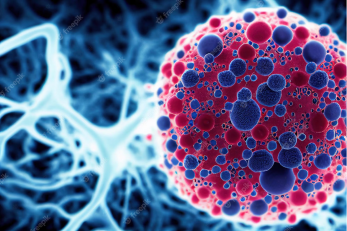
The specific causes of cancer can vary, and some risk factors, such as smoking, exposure to certain chemicals, and unhealthy lifestyle habits, can increase the likelihood of developing cancer. However, not all cases have identifiable risk factors, and some cancers may be influenced by genetic predisposition.
Early detection is crucial for successful cancer treatment, as it allows for prompt intervention and improves the chances of favourable outcomes. Regular screenings and awareness of potential cancer symptoms are essential for early diagnosis.
Cancer is a complex disease with multiple contributing factors. While the exact cause of many cancers remains unknown, certain risk factors have been identified through extensive research. Understanding these factors can help us make informed decisions to reduce the risk of developing cancer. Here are some common causes of cancer:
Genetic Mutations:
Changes in the DNA of cells can lead to uncontrolled cell growth and the development of cancer. These mutations can be inherited from parents or acquired during a person's lifetime due to exposure to environmental factors.
Tobacco Use:
Smoking and tobacco consumption are significant risk factors for several types of cancer, including lung, throat, mouth, and oesophagal cancer. Secondhand smoke exposure can also increase the risk of cancer in nonsmokers.
Unhealthy Diet:
A diet high in processed foods, red and processed meats, and saturated fats can contribute to cancer development. Conversely, a diet rich in fruits, vegetables, and whole grains can help lower the risk.
Physical Inactivity:
Lack of regular physical activity is associated with an increased risk of certain cancers. Engaging in regular exercise can be protective against cancer.
Exposure to Carcinogens:
Exposure to carcinogenic substances, such as asbestos, benzene, and certain chemicals, in the workplace or environment, can elevate the risk of cancer.
Alcohol Consumption:
Heavy and regular alcohol consumption can raise the risk of developing cancers of the liver, breast, colon, and other organs.
Prevention of Cancer:
While not all cancers can be prevented, adopting a healthy lifestyle and avoiding known risk factors can significantly reduce the likelihood of developing cancer.
Understanding Cancer Symptoms:
While cancer can present various symptoms, it's important to remember that most symptoms are not directly caused by cancer itself. They may be related to benign tumours or other non-cancerous issues. If you experience persistent symptoms lasting for a couple of weeks, your doctor will conduct a thorough physical examination and order tests to determine the cause.
Diagnosing Cancer:
When cancer is suspected, the doctor will carry out diagnostic tests or screenings to confirm the presence of cancer and rule out other possibilities. These tests help pinpoint the source of the symptoms and guide further actions.
The Importance of Cancer Staging:
Staging is a crucial process that assesses the extent of cancer, including tumour size and whether it has spread to other parts of the body. Understanding the stage of cancer helps the medical team develop an appropriate treatment plan and provides insights into your prognosis.
Grasping Cancer Prognosis:
Prognosis refers to how serious cancer is and your chances of survival. Survival statistics are used to estimate the likely outcome of the disease, but individual cases can vary. Having a clear understanding of your prognosis empowers you and your loved ones to make informed decisions.
Grasping Cancer Prognosis:
Prognosis refers to how serious cancer is and your chances of survival. Survival statistics are used to estimate the likely outcome of the disease, but individual cases can vary. Having a clear understanding of your prognosis empowers you and your loved ones to make informed decisions.
Questions to Discuss with Your Doctor:
As you face a cancer diagnosis, it's essential to have open and honest conversations with your doctor. Asking pertinent questions about your diagnosis and treatment options will enable you to better comprehend your situation and plan for the future.
Exploring Diagnosis and Staging Research:
Stay informed about the latest advancements in cancer diagnosis and staging through research articles, news stories, clinical trials, and active studies. Knowledge is a powerful tool in your journey towards improved health and well-being.
Accessing Cancer Care Services:
When faced with a cancer diagnosis, ensuring you have access to the right healthcare services is crucial for receiving optimal treatment. This section provides valuable insights into selecting the right doctor and treatment facility to manage your cancer care effectively.
Planning Ahead with Advance Directives:
Having control over your medical decisions is essential. Learn about advance directives, legal documents that empower you to make choices about the medical care you want in the future and designate a trusted individual to speak on your behalf if you're unable to do so.
Seeking Trusted Cancer Resources:
In the digital age, finding reliable health information is crucial. This section equips you with the knowledge to discern trustworthy and credible sources for cancer and other health-related information, ensuring you receive accurate and reliable guidance throughout your cancer journey.

Cancer Reach is one of the top cancer treatment hospitals in Hyderabad, offering expert care from renowned oncologists like Dr. K.V. Krishnamani. We specialize in treatments for breast cancer, lung cancer, cervical cancer, stomach cancer, brain cancer, and ovarian cancer.

We provide advanced cancer treatment methods including chemotherapy, radiotherapy, immunotherapy, and cancer surgery. Our advanced technology ensures precise and effective treatments for all types of cancer.

As the best cancer treatment hospital in Hyderabad, we offer comprehensive cancer care from diagnosis to post-treatment support. Our services include palliative care, chemotherapy, and radiotherapy to enhance your quality of life.

At Cancer Reach, we focus on a Patient-Centric Approach, ensuring personalized care for all patients. We provide compassionate support through palliative care and tailor treatments like breast cancer treatment to lung cancer treatment to meet your unique needs.

Breast cancer is a type of cancer that originates in the cells of the breast. It can occur in both men and women, though it is more common in women. It may present as a lump or changes in the breast's shape, size, or skin.
Read More
Brain cancer involves the growth of abnormal cells within the brain. Symptoms vary based on the location of the tumor and may include headaches, seizures, vision problems, or difficulty with balance and coordination.
Read More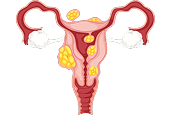
Cervical cancer occurs in the cells of the cervix, typically caused by the human papillomavirus (HPV). Early stages may show no symptoms, but it can cause abnormal bleeding, pelvic pain, or pain during intercourse in advanced stages.
Read More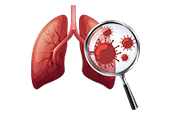
Lung cancer is a disease where abnormal cells grow uncontrollably in the lungs, leading to tumors. It is often linked to smoking but can also occur in non-smokers. Symptoms may include coughing, chest pain, and difficulty breathing.
Read More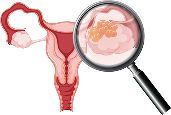
Ovarian cancer begins in the ovaries and may spread to other parts of the pelvic region. It often goes undetected in its early stages due to vague symptoms like bloating, abdominal pain, and changes in appetite. It is most common in women over 50.
Read More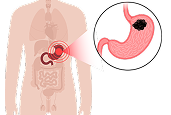
Stomach cancer starts in the stomach lining and can spread to other parts of the digestive system. Risk factors include family history, certain bacterial infections, and dietary habits. Symptoms often include persistent stomach pain, nausea, and weight loss.
Read More
Chemotherapy uses drugs to kill or slow the growth of cancer cells. It can be given orally or through an IV and is often used alongside other treatments.

Radiotherapy uses high-energy radiation to target and destroy cancer cells, either externally or internally, to shrink tumors and treat specific areas.

Immunotherapy helps the immune system fight cancer by stimulating the body’s defenses or using man-made substances to attack cancer cells.

Cancer surgery removes tumors or cancerous tissue. It is often used for localized cancer and may be combined with other treatments.

Palliative care focuses on relieving symptoms and improving quality of life for patients with advanced cancer, including pain and emotional support.

Screening and diagnostics, such as mammograms and blood tests, help detect cancer early, improving chances of successful treatment.

Copyright © All Rights Reserved by Azista Industries Private Limited.